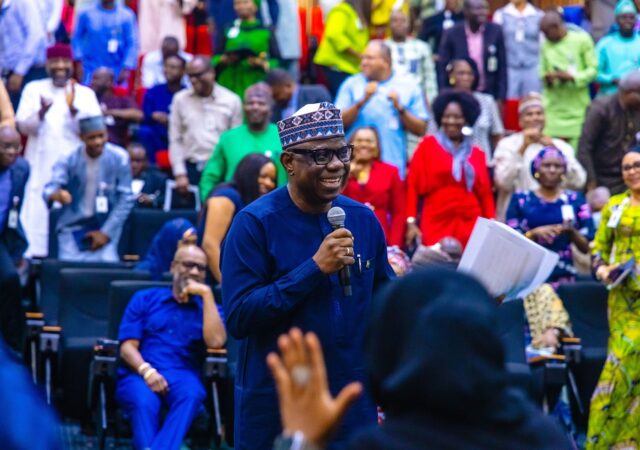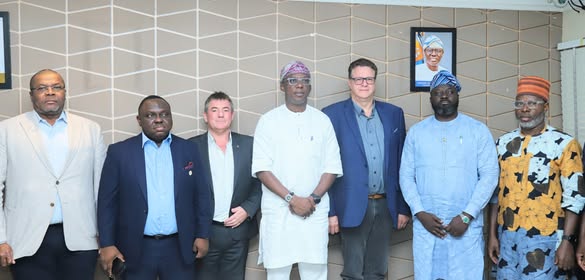The Federal Government has officially launched the second phase of the Presidential Power Initiative (PPI)—commonly referred to as the Siemens Project—through the signing of a $328.8 million Engineering, Procurement, Construction, and Financing (EPC&F) contract between FGN Power Company and China Machinery Engineering Corporation (CMEC).
The signing ceremony, held in Abuja, represents a pivotal step in Nigeria’s power sector reform and a significant effort to boost electricity transmission capacity nationwide. This new agreement follows the near-completion of the initiative’s pilot phase, which successfully delivered critical infrastructure including power transformers and substations across multiple locations.
Minister of Power, Chief Adebayo Adelabu, who presided over the event, announced that installations of the delivered equipment have already commenced in key areas such as Okene, Amukpe, Potiskum, and Apo. He further stated that the system has gained over 700 megawatts (MW) in transmission capacity, easing some of the long-standing constraints on the national grid.
“Today marks another bold step forward,” Adelabu stated. “This $328 million agreement with CMEC represents a major advancement in Phase I of the PPI, focusing on the rehabilitation and construction of both 330kV and 132kV transmission lines.”
The project will be executed in two strategic priority batches, designed to maximize impact and eliminate stranded capacity. Priority 1 encompasses seven brownfield and ten greenfield projects, covering 544 kilometers of transmission lines with a combined load capacity of 7,140MW.
Adelabu emphasized that these upgraded transmission lines will serve as vital conduits to channel power from midstream projects to homes, industries, and businesses across Nigeria. The initiative aims to resolve a major bottleneck in the electricity value chain, ultimately improving access and reliability for millions of citizens.
“This collaboration with Siemens and CMEC underscores our commitment to building a modern power sector,” he said. “It is fully aligned with President Bola Tinubu’s Renewed Hope Agenda to deliver stable, reliable electricity to Nigerians.”
Mr. Kenny Anuwe, Managing Director of FGN Power Company, echoed the Minister’s sentiments, noting that the groundwork laid during the pilot phase—featuring the delivery of 10 transformers and 10 mobile substations—is nearly complete.
“We’ve achieved over 85% installation, and the remaining components will be commissioned in the coming weeks,” Anuwe confirmed. “CMEC’s global engineering expertise assures us of a successful implementation.”
Speaking on behalf of CMEC, Mr. Li Xiaoyu, Vice President of parent company Sinomach, highlighted the firm’s established presence in Nigeria’s infrastructure landscape. He cited previously completed projects such as Omotosho Phases I and II, the Zungeru Hydroelectric Project, and the Maiduguri Emergency Power Project as proof of CMEC’s long-term commitment.
“Our partnership supports Nigeria’s national development goals and complements China’s Belt and Road Initiative by delivering strategic, sustainable solutions,” Xiaoyu said.
The Presidential Power Initiative is a multi-phase roadmap to significantly expand Nigeria’s electricity generation and delivery capacity—from 7,000MW in Phase I, to 11,000MW in Phase II, and ultimately 25,000MW in the final phase. With this new agreement, the Federal Government is advancing toward bridging the country’s electricity deficit and transforming its national grid infrastructure.







